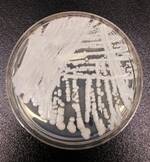Heart Disease, Infections, Technology / 07.05.2024
ESCMID: Basel Scientists Developing Breath Test for Antibiotic Monitoring
MedicalResearch.com Interview with:
Sarah Dräger, MD
Postdoc, BRCCH Researcher
Internal Medicine and ID specialist
Division of Internal Medicine
University Hospital Basel, Switzerland
Basel
MedicalResearch.com: What is the background for this study?
Response:In patients with severe infections and patients in the intensive care unit, therapeutic drug monitoring (TDM) may be used to optimize and personalize intravenous antibiotic treatment. In these patients, “conventional antibiotic dosing”, e.g. selection of the dose only considering the renal function and, if applicable, body weight, may lead to over- or underdosing due to an altered drug metabolism. This, in turn may be associated with worse clinical outcome or toxic side effects.
TDM is used to monitor antibiotic blood plasma concentrations and provides guidance to the clinicians to adjust the antibiotic dosing according to the TDM results. But the collection of blood is an invasive, time- and resource-consuming sample collection technique and leads to discomfort to the patients. Additionally, turnaround time may be long (3h to 8h), and analyses may be offered only twice or three time a week. This may be too late to guide antibiotic dosing timely in patients with a very dynamic drug metabolism. Therefore, alternatives are required to overcome the limitations of current TDM.
By using exhaled breath, we aim to develop an innovative therapeutic drug monitoring technique, which is non-invasive, easy to collect, not associated with discomfort to the patient, and which may allow to decrease the turnaround time, especially when combined with real-time analyses.
(more…)






